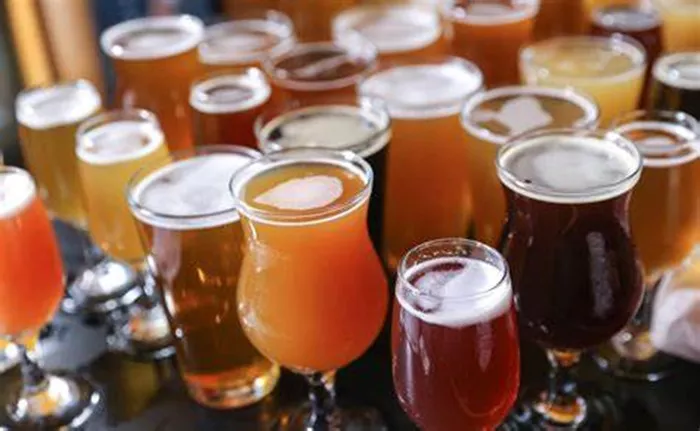Anemia is a common blood disorder that affects millions of people around the world. It occurs when there is a deficiency of red blood cells or hemoglobin in the blood, leading to symptoms such as fatigue, weakness, shortness of breath, and pale skin. While there are many treatments available for anemia, some people wonder if beer can be beneficial for this condition. In this comprehensive guide, we will explore the relationship between beer and anemia, examining the potential benefits and risks.
Understanding Anemia
Anemia can be caused by a variety of factors, including iron deficiency, vitamin deficiency (such as vitamin B12 or folate), chronic diseases, blood loss, and inherited disorders. The most common type of anemia is iron-deficiency anemia, which occurs when the body does not have enough iron to produce hemoglobin. Hemoglobin is a protein in red blood cells that carries oxygen from the lungs to the rest of the body.
The Composition of Beer
Beer is made from four main ingredients: water, malted barley, hops, and yeast. Each of these ingredients has its own unique properties and potential effects on the body. Water is the main component of beer and is essential for hydration. Malted barley provides carbohydrates, proteins, and some vitamins and minerals. Hops add flavor and aroma to beer and may have some health benefits. Yeast is responsible for fermenting the sugars in malted barley to produce alcohol.
Potential Benefits of Beer for Anemia
1. Iron Content
Some types of beer may contain small amounts of iron. Iron is an essential mineral that is needed for the production of hemoglobin. However, the iron content in beer is usually very low and may not be sufficient to treat anemia on its own.
2. Vitamin B12
Beer made from yeast-fermented grains may contain small amounts of vitamin B12. Vitamin B12 is important for the production of red blood cells and the proper functioning of the nervous system. However, the amount of vitamin B12 in beer is also very low and may not be enough to prevent or treat vitamin B12 deficiency anemia.
3. Antioxidants
Beer contains antioxidants such as polyphenols and flavonoids. These antioxidants may help protect the body from oxidative stress and inflammation, which can contribute to anemia. However, more research is needed to determine the exact role of antioxidants in anemia treatment.
Risks and Considerations
1. Alcohol Content
Beer contains alcohol, which can have negative effects on the body. Excessive alcohol consumption can lead to liver damage, anemia, and other health problems. Alcohol can also interfere with the absorption of iron, vitamin B12, and other nutrients, making anemia worse.
2. Dehydration
Alcohol is a diuretic, which means it can cause the body to lose more fluid than it takes in. Dehydration can lead to a decrease in blood volume and a drop in red blood cell count, worsening anemia.
3. Interactions with Medications
If you are taking medications for anemia or other health conditions, beer may interact with these medications. Some medications, such as iron supplements and antibiotics, can be affected by alcohol consumption. Always talk to your doctor or pharmacist before consuming beer if you are taking medications.
4. Allergies and Sensitivities
Some people may be allergic or sensitive to the ingredients in beer, such as malted barley, hops, or yeast. Allergic reactions can range from mild symptoms like itching and hives to more severe reactions like anaphylaxis. If you have a known allergy or sensitivity to beer ingredients, avoid consuming beer.
See Also: Which Beer Has The Lowest Alcohol Content?
Alternatives to Beer for Anemia
If you are looking for ways to improve your anemia, there are many alternatives to beer that are more effective and safer.
1. Iron-Rich Foods
Eating iron-rich foods such as red meat, poultry, fish, beans, lentils, spinach, and fortified cereals can help increase your iron intake and treat iron-deficiency anemia.
2. Vitamin B12 Supplements
If you have a vitamin B12 deficiency anemia, taking vitamin B12 supplements or eating foods rich in vitamin B12 like meat, fish, eggs, and dairy products can help improve your condition.
3. Folic Acid Supplements
Folic acid is important for the production of red blood cells. Taking folic acid supplements or eating foods rich in folic acid like leafy green vegetables, citrus fruits, and fortified cereals can help prevent and treat anemia.
4. Lifestyle Changes
Making lifestyle changes such as getting enough sleep, reducing stress, and exercising regularly can also help improve anemia. Exercise can increase blood flow and oxygen delivery to the body, while reducing stress can improve the immune system and help the body absorb nutrients better.
Conclusion
In conclusion, while beer may contain some nutrients that could potentially be beneficial for anemia, the risks and drawbacks of consuming beer outweigh the potential benefits. Alcohol can have negative effects on the body, including liver damage, dehydration, and interference with nutrient absorption. If you have anemia, it is important to talk to your doctor about the best treatment options, which may include iron supplements, vitamin B12 supplements, folic acid supplements, and lifestyle changes. Avoiding alcohol and focusing on a healthy diet and lifestyle is the best way to manage anemia and improve your overall health.
You might be interested


